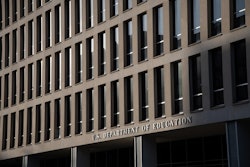It is Saturday, July 25, and the National Association of Negro
Business and Professional Women’s Clubs, Inc., is celebrating a
successful conference with a fantastic closing banquet. The keynote
speaker, Dr. Niara Sudarkasa, is talking about the seven Rs — the
essential African values that African American people must embrace and
rediscover if we are to move smoothly and successfully into the
twenty-first century.
There are home truths in her talk, but also phenomenal wisdom, as
Sister Sudarkasa runs down the values of respect, responsibility,
restraint, reciprocity, reverence, reason, and reconciliation. I could
not be more charged up as I listen to my friend, this sister whose work
so brilliantly combines study of life on the African continent with
study of Black life in these United States.
Let me put it out there, then. I’m biased. I’m a Niara Sudarkasa
fan. I’ve always liked and admired the sister, and when I visited the
Lincoln University campus in the fall of 1997, my admiration grew by
leaps and bounds. I was delighted to be part of an honors program
speaker series, and energized by the focused honors students that I
dined with before my talk. I was impressed by the Thurgood Marshall
Living and Learning Center, which included a guest wing for visitors. I
was even more impressed when I realized that Dr. Sudarkasa was
instrumental in garnering the $17 million needed to build the center.
Because of my admiration for Dr. Sudarkasa, I was stunned to learn
that she and Lincoln University have been in the Pennsylvania headlines
and that accusations swirl around these last few years of her
administration. I was also amazed to learn that this wonderful woman
has been the target of a vicious, personal attack by a man who was once
the university’s attorney.
The attack and the charges have cast such a cloud over Lincoln
University that the Pennsylvania legislature is withholding its annual
appropriation to the university until there is an audit. Dr. Sudarkasa
had to issue a press release to reassure students that the university
will open on time this fall. She has also had to fight the perception
that the university is “endangered” and has had to develop contingency
plans in case the legislature’s appropriation is too long delayed.
The first thing I asked Dr. Sudarkasa when I talked to her about the situation was simply, “Can Black people stand success?”
Instead of engaging this woman in personal attacks, her board of
directors ought to be celebrating her success. When she came to the
university as its first woman president in 1987, she was charged with
finding just 100 students with SAT scores over 800. Instead of limiting
herself to that charge, she has boosted enrollment from 1,200 to over
2,000, designed an internationally replicated honors program, and
increased the average SAT score on campus by more than 30 percent.














